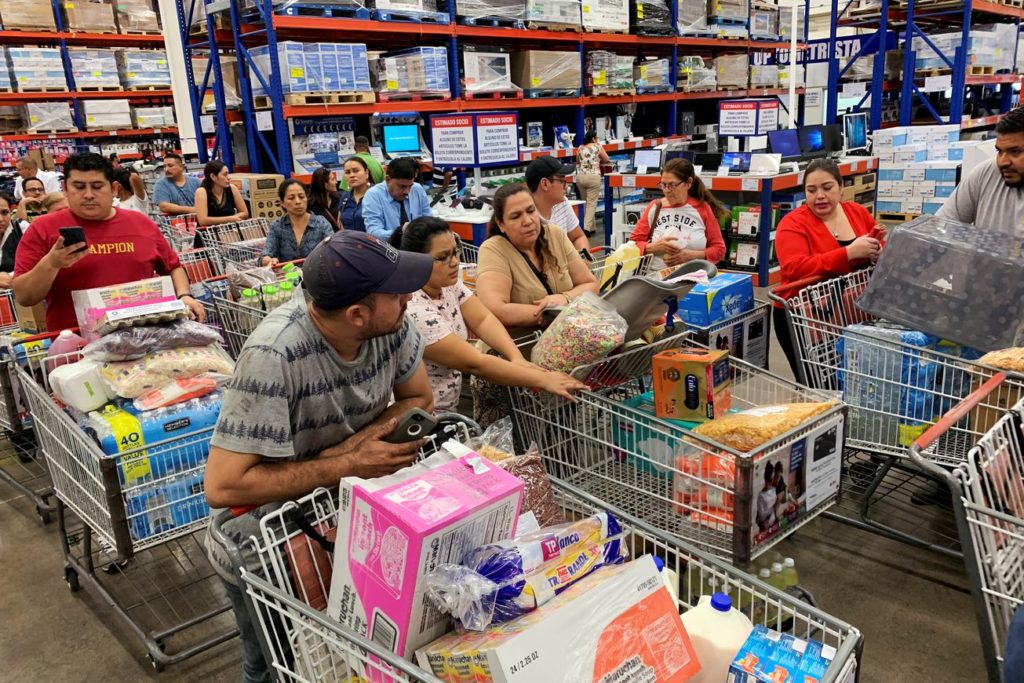
Panic buying at Utah retail outlets is continuing, despite reassurance from consumer experts that shortages of common household goods are unlikely.
LOGAN – Experts say that panic buying in the United States and elsewhere is motivated by a natural human reaction to stress and uncertainty.
“What we’re seeing is obviously unnecessary,” according to Dr. Jonathan Swinton of the Utah State University Extension Service, referring to the seemingly mad rush for toilet paper and other household necessities being reported in the news media. “But it is neither surprising nor entirely irrational if it gives anxious people the sense that they are regaining some control over their lives in the midst of the worldwide Coronavirus outbreak.”
Swinton is a relationship and mental health expert at USU who specializes in family counseling and consumer sciences for the university’s extension service.
Retail managers here in Utah report that some of the items vanishing off their shelves are goods directly associated with disease prevention, such as face masks and hand disinfectant. But there has also been panic buying for general household staples, with toilet paper topping that list of now hard-to-find products.
To a casual observer, that trend seems inexplicable since there is no indication of any impending shortage of household necessities.
But Swinton says that uncertainty is the trigger for the buying spree and that feeling is definitely justified at this time.
“We all have experience with the flu or common colds, so those diseases don’t prompt much concern,” Swinton explains. “But nobody has any experience with the Coronavirus. We don’t really know how high the risk of infection is. We don’t know if we’re already infected. We don’t know if we’ll be quarantined … Under these circumstances, jumping to worrisome conclusions isn’t really unjustified.”
For many of us, Swinton adds, retail shopping then becomes a form of therapy for those very-real feelings of uncertainty. The fact that many of those panic purchases are for necessary utilitarian products probably just reinforces the shoppers’ sense of regaining control.
The accelerated pace of binge shopping over the past weekend was likely sparked by herd instinct and fueled by hysterical news reporting and social media attention, according to analysts from the Centers for Disease Control and Prevention.
“It would undoubtedly be more practical for all of us to reassert personal control by focusing on those things we should all be doing anyway,” Swinton acknowledges. “Those things include improving personal hygiene, maintaining social distance and eating more healthy foods. But anything that reassures people – even binge buying – can be beneficial psychologically.”
The only irrational thing about the current madcap purchasing trends, Swinton suggested, is that shoppers waiting in long check-out lines at retail stores are exposing themselves to the risk of Coronavirus infection by ignoring guidance from health and government officials to avoid large gatherings of people.

